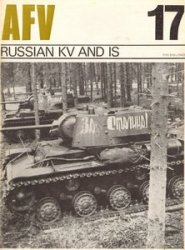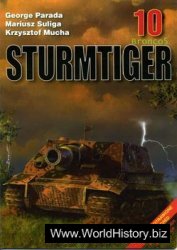The courageous leaders mutually prepared for battle, each according to his national custom. The English, as we have heard, passed the night without sleep, in drinking and singing, and in the morning proceeded without delay against the enemy. All on foot, armed with battle-axes, and covering themselves in front by the juncture of their shields, they formed an impenetrable body which would assuredly have secured their safety that day had not the Normans, by a feigned flight, induced them to open their ranks, which till that time, according to their custom, had been closely compacted. King Harold himself, on foot, stood with his brothers near the standard in order that, so long as all shared equal danger, none could think of retreating. This same standard William sent, after his
By the juncture of their shields: In other words, by putting their square shields together to form a solid wall—a practice learned from the Romans.
Feigned flight: A pretended retreat or escape.
Induced: Encouraged.
To open their ranks: That is, to go from a tight to a loose military formation, making it easier to attack them.
Standard: A banner soldiers carried into war, which was highly important for its symbolic power.
Infantry: Foot soldiers.
Vanguard: Front or leading edge.
Cavalry: Soldiers on horseback.
Serene countenance: Brave appearance.
Arms: Weapons.
Hauberk: A covering of chain mail, a type of armor.
The hind part before: In
Other words, backwards.
Ardor: Enthusiasm.
Phalanx: A column of soldiers.
Fly: Flee.
Deceived by a stratagem:
Tricked by a clever plan.
Eminence: A hill or high point.
To a man: In other words, they killed them all.
A short passage: A shortcut. Trod: Trampled.
Hollow: A sunken area.
Melancholy havoc was wrought: In other words, terrible trouble was caused.
Usages: Practices.
Heathens: Godless people. Rights: Laws.
By degrees: Gradually.
Relegated arms to a secondary place: In other words, made military matters less important.
Clergy: Priests.
Victory, to the pope; it was sumptuously embroidered with gold and precious stones, and represented the figure of a man fighting.
On the other hand, the Normans passed the whole night in confessing their sins, and received the communion of the Lord's body in the morning. Their infantry, with bows and arrows, formed the vanguard, while their cavalry, divided into wings, was placed in the rear. The duke [William], with serene countenance, declaring aloud that God would favor his as being the righteous side, called for his arms; and when, through the haste of his attendants, he had put on his hauberk the hind part before, he corrected the mistake with a laugh, saying "The power of my dukedom shall be turned into a kingdom." Then starting the Song of Roland, in order that the warlike example of that hero might stimulate the soldiers, and calling on God for assistance, the battle commenced on both sides, and was fought with great ardor, neither side giving ground during the greater part of the day.
Observing this, William gave a signal to his troops, that, feigning flight, they should withdraw from the field. By means of this device the solid phalanx of the English opened for the purpose of cutting down the fleeing enemy and thus brought upon itself swift destruction; for the Normans, facing about, attacked them, thus disordered, and compelled them to fly. In this manner, deceived by a stratagem, they met an honorable death in avenging their enemy; nor indeed were they at all without their own revenge, for, by frequently making a stand, they slaughtered their pursuers in heaps. Getting possession of an eminence, they drove back the Normans, who in the heat of pursuit were struggling up the slope, into the valley beneath, where, by hurling their javelins and rolling down stones on them as they stood below, the English easily destroyed them to a man. Besides, by a short passage with which they were acquainted, they avoided a deep ditch and trod underfoot such a multitude of their enemies in that place that the heaps of bodies made the hollow level with the plain. This alternating victory, first of one side and then of the other, continued so long as Harold lived to check the retreat; but when he fell, his brain pierced by an arrow, the flight of the English ceased not until night.
... This was a fatal day to England, and melancholy havoc was wrought in our dear country during the change of its lords. For it had long adopted the manners of the Angles, which had indeed altered with the times; for in the first years of their arrival they were barbarians in their look and manner, warlike in their usages, heathens in their rights. After embracing the faith of Christ, by degrees and, in process of time, in consequence of the peace which they enjoyed, they relegated arms to a secondary place and gave their whole attention to religion.
... Nevertheless, the attention to literature and religion had gradually decreased for several years before the arrival of the Normans. The clergy, contented with a little confused learning, could scarcely stammer out the words of the sacraments; and a person who understood grammar was an object of wonder and astonishment. The monks mocked the rule of their order by fine vestments and the use of every kind of food. The nobility, given up to luxury and wantonness, went not to church in the morning after the manner of Christians, but merely, in a careless manner, heard matins and masses from a hurrying priest in their chambers, amid the blandishments of their wives. The commonalty, left unprotected, became a prey to the most powerful, who amassed fortunes, either by seizing on their property or by selling their persons into foreign countries; although it is characteristic of this people to be more inclined to reveling than to the accumulation of wealth....
Drinking in parties was a universal practice, in which occupation they passed entire nights as well as days. They consumed their whole substance in mean and despicable houses, unlike the Normans and French, who live frugally in noble and splendid mansions. The vices attendant on drunkenness, which enervate the human mind, followed; hence it came about that when they engaged William, with more rashness and precipitate fury than military skill, they doomed themselves and their country to slavery by a single, and [at] that an easy, victory. For nothing is less effective than rashness; and what begins with violence quickly ceases or is repelled.





 World History
World History









